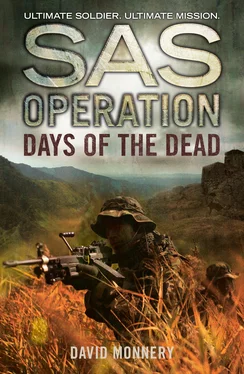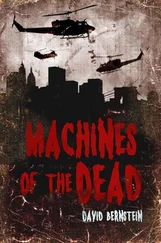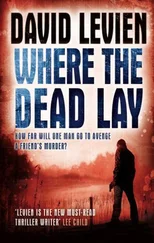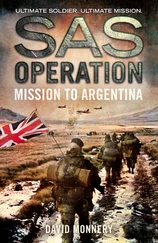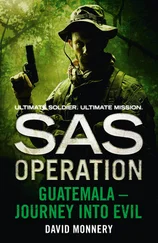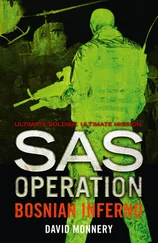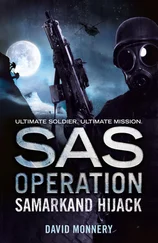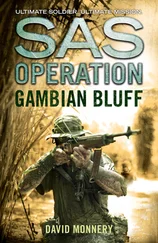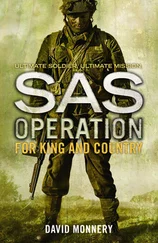The ludicrous thought flashed through Shepreth’s mind that he would never know who won Euro 96. Get a grip, he told himself. This was life and death.
They led him down the deserted stairs and out into an empty alley, and Moustache kept a gun on him while Pitted Cheeks went off, presumably to collect their car. This might be his only chance, Shepreth thought, but really it was no chance at all. Moustache was too far away for a lunge and there was no reason to suppose the Colombian would do anything other than put a bullet in Shepreth’s kneecap if he tried. And then he’d never get another chance.
Despite the training, despite what his head told him, it all seemed unreal somehow, standing there so helplessly in an alley in Panama City, with a man who’d more or less promised that he’d never see another dawn. The sounds of the city were all around them, but strangely distant, as if the alley was enclosed in thick but invisible glass.
The Colombians’ car bumped its way towards them, shattering the spell.
Pitted Cheeks got out and the two of them discussed whether or not to put him in the boot. They decided against, reasoning that if they knocked him out the questioning might be delayed, but if they didn’t he might drum on the lid at the wrong moment. They both clearly enjoyed this discussion – such attention to detail, Shepreth realized, was their proof of professionalism. These men might be lacking in humanity, but not in job satisfaction.
He was ordered into the wide back seat of the car, a black Toyota Camry, and Moustache climbed in beside him, eyes watchful, careful to keep a couple of feet between prisoner and gun.
Pitted Cheeks got in behind the wheel and started the car rolling forward. They turned left out of the alley on to Calle 36 and purred uphill towards Avenida 3, now jostling with people out for their evening stroll through the shopping district. Shepreth thought of lunging for the door, but knew it would be fatal – Moustache’s eyes had not left him for a second since they entered the car.
They crossed Avenida 3 and headed up towards the next big crossroads. In ten minutes they might be out of the city altogether, Shepreth thought. If he was going to do anything, it had to be soon. But what? He felt paralysed. Moustache smirked at him, as if he knew exactly what was going on in his prisoner’s mind.
As Pitted Cheeks waited to turn right on to the busy Avenida 2 a bus first lurched forward and then abruptly pulled up again as the lights changed. This motion not only fooled Pitted Cheeks, who paused for a second before pulling out, but also a taxi coming up on the blind side of the stalled bus, which was through the red light before the driver had realized his mistake. His emergency stop would have pleased his original instructor, but there was no way he could avoid making contact with the side of the Toyota.
The crash was louder than it felt, and Moustache’s gun hardly seemed to waver, but the taxi driver was already out on the street and hundreds of eyes were turned their way. Two of them, Shepreth realized with sudden hope, belonged to a traffic cop who was now walking their way.
Moustache had seen him too, and the gun was now in his pocket, albeit still obviously aimed in Shepreth’s direction.
Pitted Cheeks climbed reluctantly out of the Toyota, just as the cop arrived to take charge. As he looked into the car Shepreth deliberately reached for the door handle, opened the door and climbed out on to the street. No bullets gouged into him.
He smiled at the cop and leant against the car’s roof for a moment until the man’s attention was back on the two drivers. There had to be about two hundred people standing around enjoying the show, and the cop was obviously going to milk the spotlight for all he could. A cacophony of horns was rising from the stranded traffic.
‘I’ll see you later,’ Shepreth told Moustache, and began walking away. Ten steps later he was through the first line of watchers, and looking back he could see that neither of the Colombians was making any attempt to follow him. He walked on along the crowded pavement, his heart thumping in his chest, hardly daring to believe his luck.
From Avenida 2 he took a taxi to his hotel, tipping the driver with a generosity which the man appreciated better than he understood. It took Shepreth three minutes to clear his room and check out; fifteen minutes later he was registering at another hotel under another name, using the alternative identification he carried for such emergencies. He didn’t think the Colombians would come looking for him – the risks seemed to outweigh the potential benefits – but he spent most of the night dozing in a chair, fingers wrapped round the butt of his other gun.
With an hour-long stopover in Quito, Docherty’s journey from Santiago de Chile to Mexico City took just over ten hours. For almost all of the first flight he was able to stare out of his window at the majestic Andes, but most of the second was over water, and the choice of entertainment came down to either Arnie Schwarzenegger or his own thoughts.
Five days had passed since he and Isabel had visited the Macíases in Devoto, two since their return home from Buenos Aires. He had watched out for signs that his wife was regretting her decision to approve the trip, but, natural anxieties apart, there had been none that he could see, and on the eve of his departure, after they’d made love on a bed still strewn with his packing, she had made her feelings clear. ‘If it wasn’t for the children,’ she had told him, ‘I’d be coming with you. In fact, there’s one voice inside me says I should be going instead of you. These are the people I’ve been fighting all my life. The people who killed my friends.’
Sitting in the plane, Docherty could see her face on the pillow, the same mingling of determination and anxiety in her dark eyes, and he could remember that moment in the car outside Rio Gallegos in 1982, when the rest of the SAS patrol had been captured and she’d refused to head for the border alone. ‘I could cross ten borders and never leave this war behind,’ she had said at the time.
But what was his excuse? Terrible things had been done in Argentina, but the same could be said of many other countries, and though he had more than a vague attachment to old-fashioned notions of justice, Docherty had no desire to take on the mantle of a one-man crusade. The money would be nice, of course, but that wasn’t the reason for his presence on this flight either – in fact he wasn’t at all sure what his motivation was. He hoped it was more than an older man’s attempt to relive his youth. ‘But I wouldn’t bet money on it,’ he murmured to himself.
He shook the doubts aside, and picked up the guide to Mexico City which Isabel had bought for him the previous day. In his two stays there in 1977 he had found the place oppressive, but that was hardly surprising – during the first he had still been crazy with grief and by the time of the second he had the rest of the country to compare it with. In nearly five months of travelling he had fallen in love with Mexico, its people and its churches, its mountains and its beaches.
A part of him had always meant to go back, but another part had feared that for him the country would always be entangled with memories of Chrissie. It was her senseless death on a zebra crossing just six months after their marriage which had driven him abroad in the first place, and fate had decreed that Mexico should be the place which brought him back to life. The life he had given to the SAS and his family, and not necessarily in that order.
He turned his attention to the present. If Gustavo Macías was right, and Lazaro Toscono’s business in Mexico City was just a drug-trade front, then he would have to be careful about how he approached the man. It would not do to start hammering on the bastard’s front door before he found out what was behind it. As one of his old SAS instructors had put it: a few hours of observation is worth a thousand stun grenades.
Читать дальше
